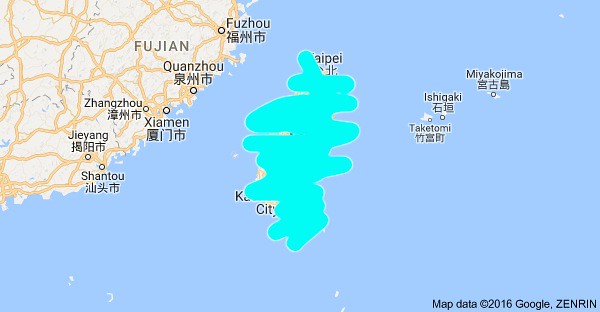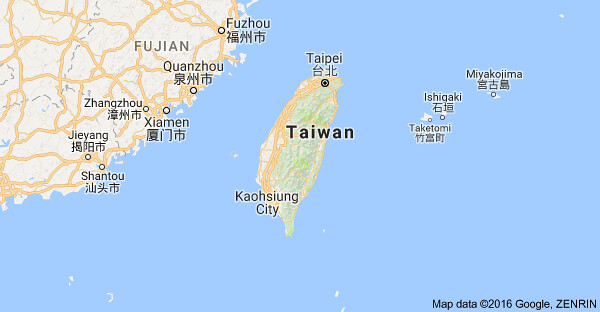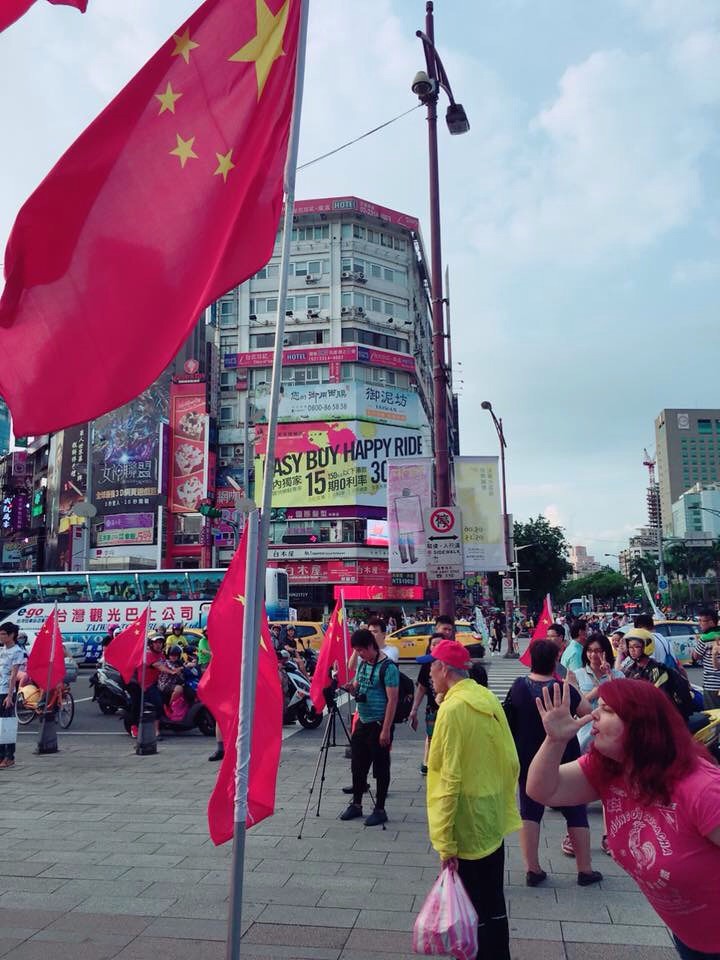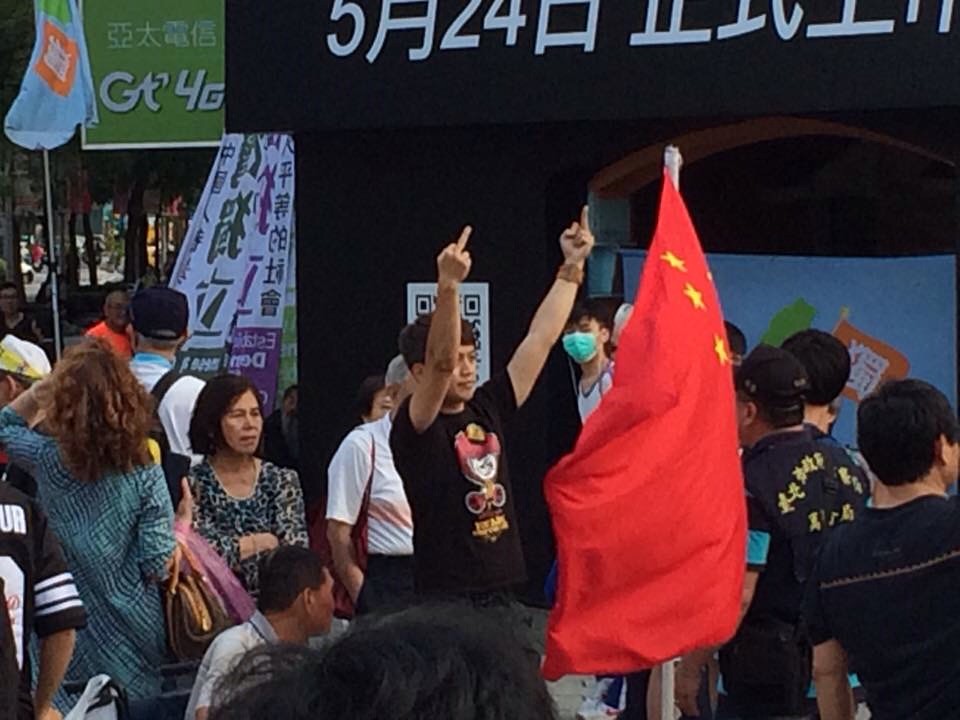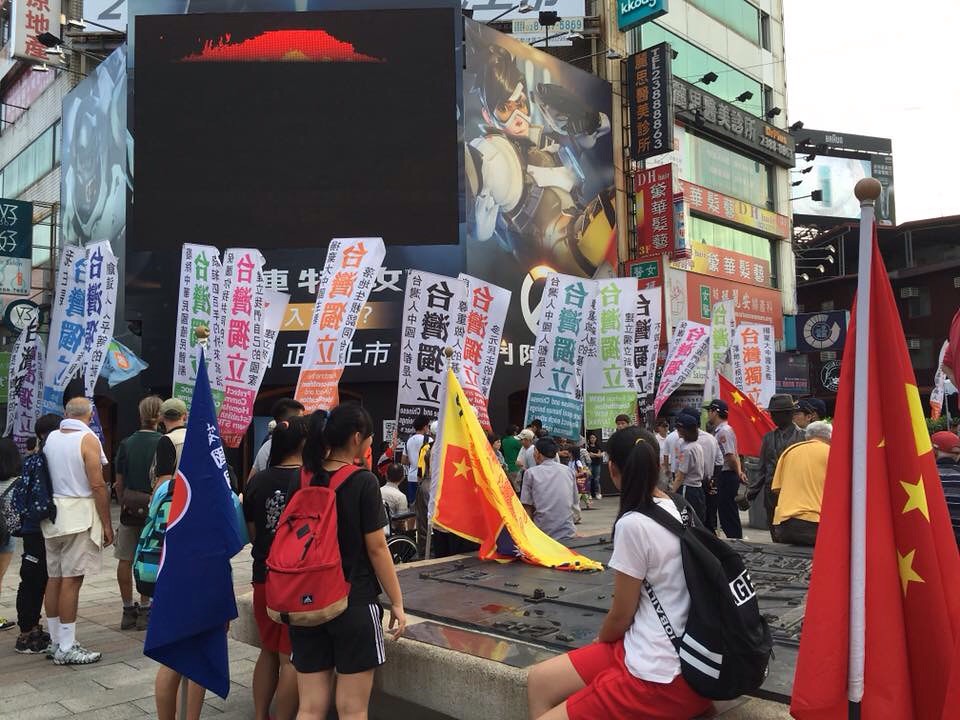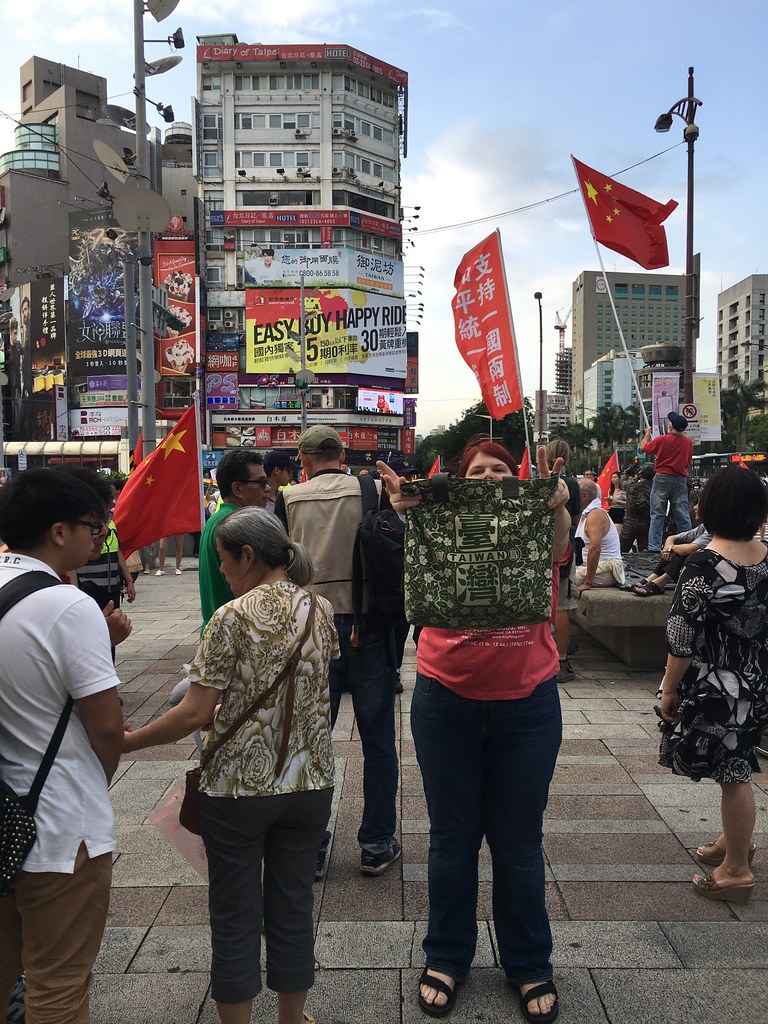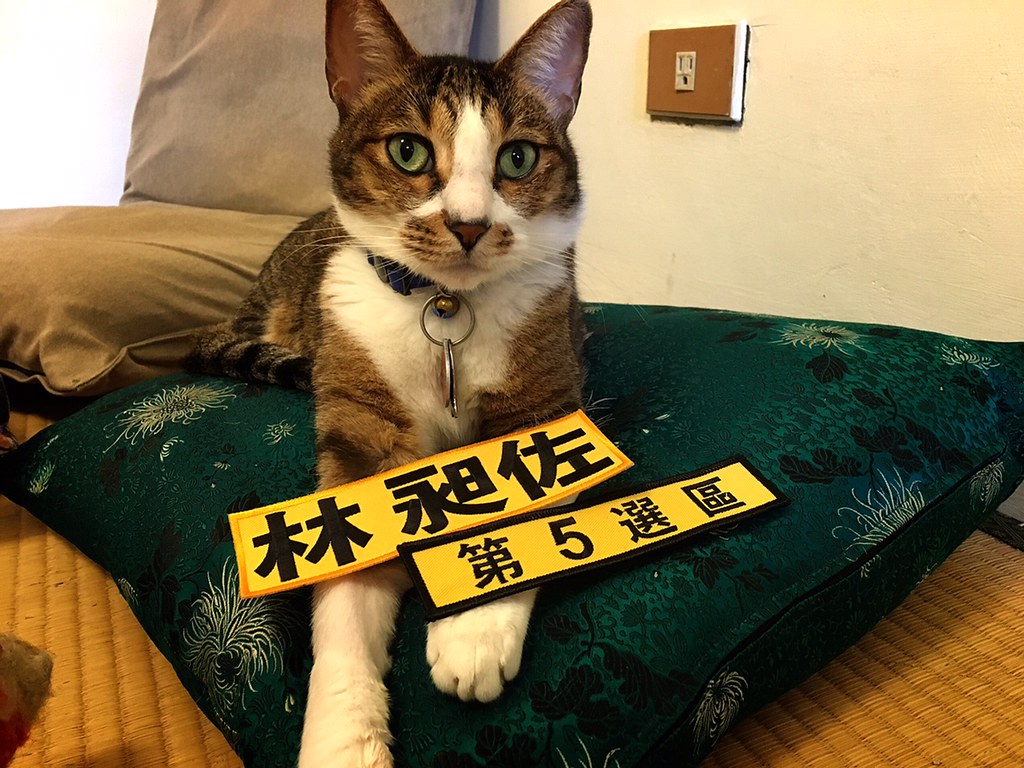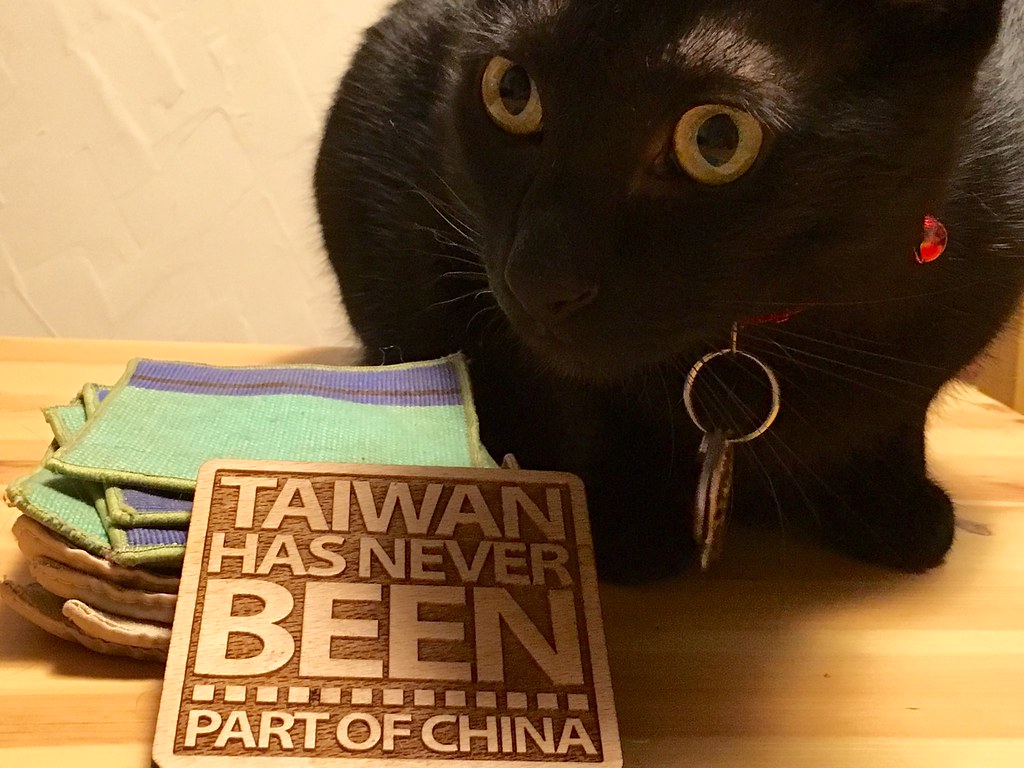My friends and I had planned to spend the morning at the Nylon Deng Liberty Museum near MRT Zhongshan Junior High School. I had wanted to go on April 7th, which will be the 28th anniversary of Nylon's self-immolation, but others were not available. 228 is also a suitable day, as much of Nylon's work revolved around appropriately recognizing and commemorating the 228 Massacre. Deng is almost a mythical figure and hero among activists and the socially and politically engaged, but remains somewhat unknown in mainstream society - I have many students who have never heard of him, and I had been in Taiwan for several years before I learned of his work and sacrifice.
It's a quieter sort of reflection, away from the speeches, music and even protests. I strongly recommend going - it's a small museum but a very emotional experience - I'll post a few photos later. The office where he set the fire, preserved in its charred state, is hard to look at straight on, to be honest. I also recommend watching the longer, 50-minute film (English subtitles available on request, and you can buy a DVD of the film for a reasonable price). Be warned: you will cry, especially if you care about Taiwan, but even if you are not so attached to this country.
Downtown, participants in the Gongsheng music festival (a 228 commemorative event) and members of one of the most conservative - and geriatric - factions of the KMT clashed before the two sides were separated by the police. A full piece will be out later on this (here it is!), but I'll go out on a limb and say the old folks started it.
I may be wrong, but it seems like these sort of scuffles are more common this year than in the past (perhaps in the past I didn't notice as much, but it really feels like an escalation). Skirmishes not only took place between the pro-KMT folks out waving their ROC flags - a few days ago pro-unificationists attacked a 228-related book signing.
If my impression is correct, all I can say is this: when a privileged minority with outdated views starts losing their privileged position in a society and with it their ability to dominate the cultural narrative of that society, they tend to react angrily. Finding that your views are not only no longer mainstream but that people are not letting you manipulate what your collective society stands for tends to cause people to lash out. Nobody likes having their power taken away, and nobody likes being faced with the cognitive dissonance of realizing society now believes that the party or ideology they've supported is not only outmoded but in fact morally wrong, or even requiring justice to rectify wrongs that you never thought were actually wrong. We've seen it recently in other countries - I mean, look at where I'm from - so it's no surprise that the Huang Fu-xing (a far-right chapter of the KMT consisting mostly of Nationalist veterans of advanced age) would be acting this way.
As we continue to strip them of their privilege and cultural power both in general society and through specific acts of transitional justice, expect them to lash out more. Be vigilant, as well: we know they are in the minority, and we know they are behind the times and reacting out of anger that they are no longer in control. However, if recent events in the country of my birth prove anything, it's that you can never be sure that they won't strike back hard enough to actually win even as it seems that their beliefs are (literally) dying out.
On the other side of the ideological divide,
Regardless of the reason, I would say that closing the hall even for a day is the right thing to do. It is an insult to the dead to have a large memorial complex celebrating the man who is ultimately responsible for their deaths. However, it doesn't go far enough. That statue ought to have been removed years ago (as I once said in a TV interview back when it was renamed Freedom Square, only to have my words purposely mistranslated into "everyone has their opinion, I think we should all be able to hold different views", which I never said). The entire place ought to be repurposed (I find it visually appealing enough, but really can't stand that it memorializes a deeply evil man). The memorial hall has said that they will stop selling CKS-related merchandise and other things that show him in a positive light, but until it is truly Freedom Square - or perhaps the new building for the Legislative Yuan - it still doesn't go far enough.
Honestly speaking, beyond 228 - for which Chiang was, in fact, responsible - when I look at Taiwanese history post-1945, at every turn (every fucking turn!) the person most responsible, almost singlehandedly responsible, for fucking over Taiwan. He completely fucked the whole country (fuck!), and yet there's a creepy-ass personality cult monument to him taking up prime real estate downtown. Fuck him - it's time for that to change.
Of course, not everyone understands the role that Chiang did play in 228.
Along those lines, a "revelation" (it wasn't really) of great interest was also made public this month: some scholars have long suspected that Chiang Kai-shek was ultimately responsible for the 228 Massacre, despite one of the accepted narratives being that he was in China at the time and could not have been responsible for the actions of Chen Yi. Now, we have proof that he was, in fact, responsible. Correspondence between Chen and Chiang in which the former asks for troops (which were granted) has been found and published, giving clear proof that Chiang was aware of the situation in Taiwan and authorized troops to be sent. It isn't hard, if you understand how the wheels of history work, to figure out that he must have known how those troops were going to be used.
In any case, an excellent run-down of the document and its significance (and a strong case for why it shows that Chiang is ultimately responsible for the massacre) can be found here. I won't repeat what has already been said so well.
Moving on from that into shallower waters, apparently there's some dumb kerfuffle over Pizza Hut offering promotions over the long weekend, because other countries commemorate tragedies in an appropriately solemn atmosphere. The example given is September 11 in the United States.
First, I do need to say that what Pizza Hut did was insensitive and stupid. My issue is not that the ad was fine; it wasn't. (I did not realize at first that they changed it from "Killer Deals!" to something less horrifying. "Killer deals!" is never okay.) I just think focusing on this takes up time and discourse over things of greater importance.
That said, regarding September 11, I can't speak for every public holiday surrounding a tragedy worldwide, but September 11 in the US is not a public holiday, whereas 228 in Taiwan is. The only closely analogous holidays that are actually days off (well, for some people) in the US are perhaps Veteran's Day and Memorial Day. And, let's be honest, in terms of how those are actually celebrated, we may as well rename them Mattress Discounters Day or Raymour & Flanagan Super Blowout Sale Day or whatever. Come on. Are people taking trips or visiting relatives rather than attending commemorative events? Some are, but given how little free time and how few holidays Taiwanese get, can you really blame them? I have no patience for this line of criticism.
Let me be clear - I do not think it is appropriate for Pizza Hut to offer promotions on 228, especially if they reference the massacre in particular. I just want to point out that plenty of public holidays are commodified or commercialized around the world, even the ostensibly solemn ones. This isn't some isolated incident of corporate apathy (Big Business is always apathetic, this is nothing new. That's why I don't get my moral code from Pizza Hut. Or my pizza...)
Finally, being the 70th anniversary of the massacre, and also a politically charged year as the "opposition" (they're not anymore) has control of both the legislature and the presidency for the first time in Taiwan's history, it is understandable that there are more media offerings on the legacy of the tragedy of 228. The Duty of 228 is a touching video, which feels more like flipping through an interactive scrapbook than a traditional 'video' and is worth a watch. The New York Times has a pretty solid article on the massacre, although I take exception to the assertion that, when the Nationalists arrived in Taiwan, that Taiwanese as a whole were overjoyed or particularly welcomed them.
That is, of course, the prevailing narrative and it is true that the streets were lined with "supporters" as the soldiers arrived. However, I question the degree to which they were really happy to be "liberated" from Japanese colonial rule (Japanese rule itself being a complex topic that I will not tackle here). Everything I've read on the topic - which admittedly isn't much - points out that many Taiwanese were disappointed to see how small and ragged these 'liberators' really were. One credible acquaintance points out that many of the "supporters" on the street were children who were told by their teachers to be there - if you're told to go outside and cheer, you don't count as a "supporter". I have also read that the crowd of "supporters" (scare quotes included) when Chiang and his wife appeared in the Presidential Office was, well, there - but it wasn't clear how much they really "supported" the KMT's taking over.
What's more, as much as anti-Taiwan, pro-China voices claim otherwise, there was in fact a Taiwanese autonomy/independence movement in existence at that time, and George Kerr even makes reference to Taiwanese who want autonomy. (I also have trouble believing that the ideologies and thought processes behind the formation of the Formosa League for Re-Emancipation, which was founded in 1948, were birthed in their entirety by the events of 228. I find it very hard to believe that there were no smaller groups around before that talking about Taiwanese independence. Furthermore, he and others were quite clear that plenty of political elites in China worried about how the ROC was going to approach the governance of an island full of people so different from the rest of China - in great part because most of them grew up under the Japanese. It is inconceivable to me that Taiwanese did not, to some extent, share similar worries.
In any case, the article is pretty good, the video is lovely, and although I haven't read it yet, I am sure Tsai's speech will be of interest (almost the least interesting thing to have happened surrounding 228 this year, although I would also like to hear what the first DPP president since Chen Shui-bian has to say).


